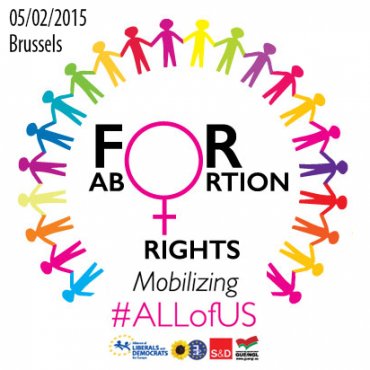Pro-abortion EU parliamentarians launch campaign with false stats and knock-off slogan
The pro-life European citizens’ initiative “One of Us” may have failed so far in achieving its purpose of getting the European Parliament to recognize the human embryo as a person worthy of protection. It has, however, succeeded in mobilizing an active grassroots pro-life force in Europe – and abortion advocates are now officially on notice.
Last week, a group of liberal European Union parliamentarians met in Brussels to declare their support for broadly accessible and legal abortion both in the EU and around the world.
According to Swedish newspaper Ottar, the event’s organizers were troubled by the widespread support for the “One of Us” initiative, and the growing budgets of European pro-life groups. Dutch Liberal parliamentarian Sophie in ‘t Veld called for more information regarding the financing of the pro-life movement in Europe. Fellow event organizer Neil Datta, head of the European Parliamentary Forum on Population and Development (EPF), noted that pro-life organizations in Europe have become more professional, organized, and well-financed in recent years.
The reactionary nature of the pro-abortion event was evident from the title: “All of Us”, clearly in reference to the “One of Us” campaign.
The attendees launched a joint declaration signed by five EU parliamentarians.
One of the statements in the declaration reads as follows:
ALL OF US recall that unsafe abortions are a significant cause of maternal mortality in developing countries and account for 16% of deaths, or 47,000 deaths each year, or more than 5 women per hour who die of unsafe abortions;
This statistic, which was not attributed to any source, is blatantly false. The 47,000 deaths per year statistic likely comes from a 2008 Lancet article by the Guttmacher Institute. However, that same article says that this accounts for only 13% of maternal deaths, not 16%.
In addition to being incorrect, the statistic is also outdated. Last year, the Lancet published a new analysis from the World Health Organization that reviewed studies published between 2003 and 2012. They concluded that only 7.9% of maternal deaths were attributable to abortion.
Why would pro-abortion EU politicians claim a death rate from “unsafe” abortion that is double the most recent available number? As a region, Europe leads the world in maternal health, and the European countries with the most pro-life laws, such as Malta, Ireland, and Poland, have low maternal mortality rates, not just by global standards but by European standards as well.
However, as the “All of Us” declaration admits, even the countries with more liberal laws on abortion have restrictions to protect unborn children – and the rights of doctors who provide health care to pregnant women:
“ALL OF US note with great concern that 25 out of 28 EU member states today have progressive abortion laws but in spite of abortion being legal, access to abortion remains widely unavailable, through the abuse of conscientious objection or overly restrictive interpretations of existing limits;”
While the declaration states that its signatories want abortion rates to be “as low as possible,” (and that modern contraceptives are a key part of achieving this,) they nevertheless insist that “women have always had–and will continue to have–abortions.”
Putting it even more bluntly is Marge Berer, editor of Reproductive Health Matters, in this statement given at the EuroNGOs conference last fall:
“Abortion has always been a method of family planning, even the US government admitted that in 1975. It is a method of fertility control. One in three women in the United Kingdom where the contraceptive prevalence rate is around 80 percent which is about as high as it gets, still has an abortion in her life time. This is a common experience of women, it is a necessary adjunct to having sex with men.”
It doesn’t get much clearer than that – to Berer and her colleagues, abortion is not even an unfortunate necessity in tough cases, it’s a simple fact of life.
However, if pro-abortion European parliamentarians want to take on the rising pro-life sentiment within their region – and around the world – they will have to do better than ripped-off slogans and false statistics.
View online at: https://c-fam.org/turtle_bay/pro-abortion-eu-parliamentarians-launch-campaign-false-stats-knock-off-slogan/
© 2024 C-Fam (Center for Family & Human Rights).
Permission granted for unlimited use. Credit required.
www.c-fam.org


